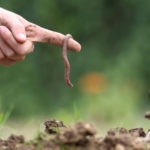Gardening Helps to Promote a Child's Sensory Motor Development
Hands-on learning activities in the garden are a perfect way to increase hand-eye coordination and sensory motor development in children. Gardening activities like pulling weeds, digging and planting seeds offer ideal sensory experiences for kids with neurobehavioral disorders of childhood, and the natural setting offers therapeutic effects for children with ADHD and Asperger's Syndrome. Providing activities that stimulate the brain through the senses can help improve cognitive function for these children. Hands-on learning encourages healthy brain development in children and makes learning come to life. Use these activities to provide hours of hands-on learning opportunities in your own backyard:
Dandelion Salad
 Gather dandelion greens before the yellow flowers blossom for a tasty salad - picking before the blossoms open helps avoid tough and bitter greens. Gather from places free of litter, auto exhaust and animal waste. Use a dandelion removal tool to pop the plant out of the ground with the leaves still attached. This keeps the greens from wilting before they are washed and tossed into a salad. This activity offers children a perfect opportunity to experience where food comes from and encourages them to eat healthy.
Gather dandelion greens before the yellow flowers blossom for a tasty salad - picking before the blossoms open helps avoid tough and bitter greens. Gather from places free of litter, auto exhaust and animal waste. Use a dandelion removal tool to pop the plant out of the ground with the leaves still attached. This keeps the greens from wilting before they are washed and tossed into a salad. This activity offers children a perfect opportunity to experience where food comes from and encourages them to eat healthy.
Grow Your Own Pumpkins
 Growing pumpkins lets children see how Jack-o-Lanterns sprout, grow and develop before harvesting them for Halloween fun and offers a perfect opportunity to work on fine motor skills. Choose a large area for planting because pumpkins need a lot of room. Turn the soil and let children remove weeds and clods of grass from the soil with their hands. Smooth out the area and make one large mound of dirt, about three inches high and flat on top. Using their fingers, children can poke several holes in the top of the mound. Insert two pumpkin seeds in each hole. Cover the holes with soil and pat down gently. Water pumpkin seeds daily but lightly so as not to disturb them. Watch for sprouts in about 7 to 10 days. When the first small pumpkins form consider putting a wire cage around the plant to keep hungry critters away.
Growing pumpkins lets children see how Jack-o-Lanterns sprout, grow and develop before harvesting them for Halloween fun and offers a perfect opportunity to work on fine motor skills. Choose a large area for planting because pumpkins need a lot of room. Turn the soil and let children remove weeds and clods of grass from the soil with their hands. Smooth out the area and make one large mound of dirt, about three inches high and flat on top. Using their fingers, children can poke several holes in the top of the mound. Insert two pumpkin seeds in each hole. Cover the holes with soil and pat down gently. Water pumpkin seeds daily but lightly so as not to disturb them. Watch for sprouts in about 7 to 10 days. When the first small pumpkins form consider putting a wire cage around the plant to keep hungry critters away.
Wonderful Worm Boxes
 Gardening for childhood brain development should include activities that show kids all the aspects of how food grows. Worms are natural cultivators and keep the soil light and aerated, so plenty of oxygen and nutrients can get to plants. Follow these simple steps to get your child's worm box up and running:
Gardening for childhood brain development should include activities that show kids all the aspects of how food grows. Worms are natural cultivators and keep the soil light and aerated, so plenty of oxygen and nutrients can get to plants. Follow these simple steps to get your child's worm box up and running:
- Purchase a plastic or wooden container with a lid and drill holes in the top for airflow, and in the bottom for drainage.
- Fill the container with bedding such as newspaper strips, compost or coconut hulls. Moisten the bedding but make sure it is not wet.
- Bury some kitchen scraps in the bedding. Use fruit, vegetables and egg shells, but do not use meat scraps or other cooked, greasy foods.
- Add a few red wiggler worms. You can get these free from your local university farm extension or from another gardener who has a worm box.
- Keep a layer of bedding on the surface that doesn't contain food waste, to cut down the odor.
- Turn the contents of the worm box each time you add food waste so your children can see that the worms are multiplying.
Kids love to play hard and get dirty, so gardening and children go hand in hand. Using gardening for stress management helps reduce anxiety and improve sleep habits. This type of play therapy for children lets them enjoy the fruits of their labors and learn that hard work can also be fun. In addition, gardening is a perfect activity to help integrate sensory input and strengthen motor skills.
Enjoy These Related Articles
Sensory Activities for Summer
Special Needs Tips for Avoiding Avoiding Fourth of July Sensory Overload
Special Needs Update: Avoid Summertime Meltdowns